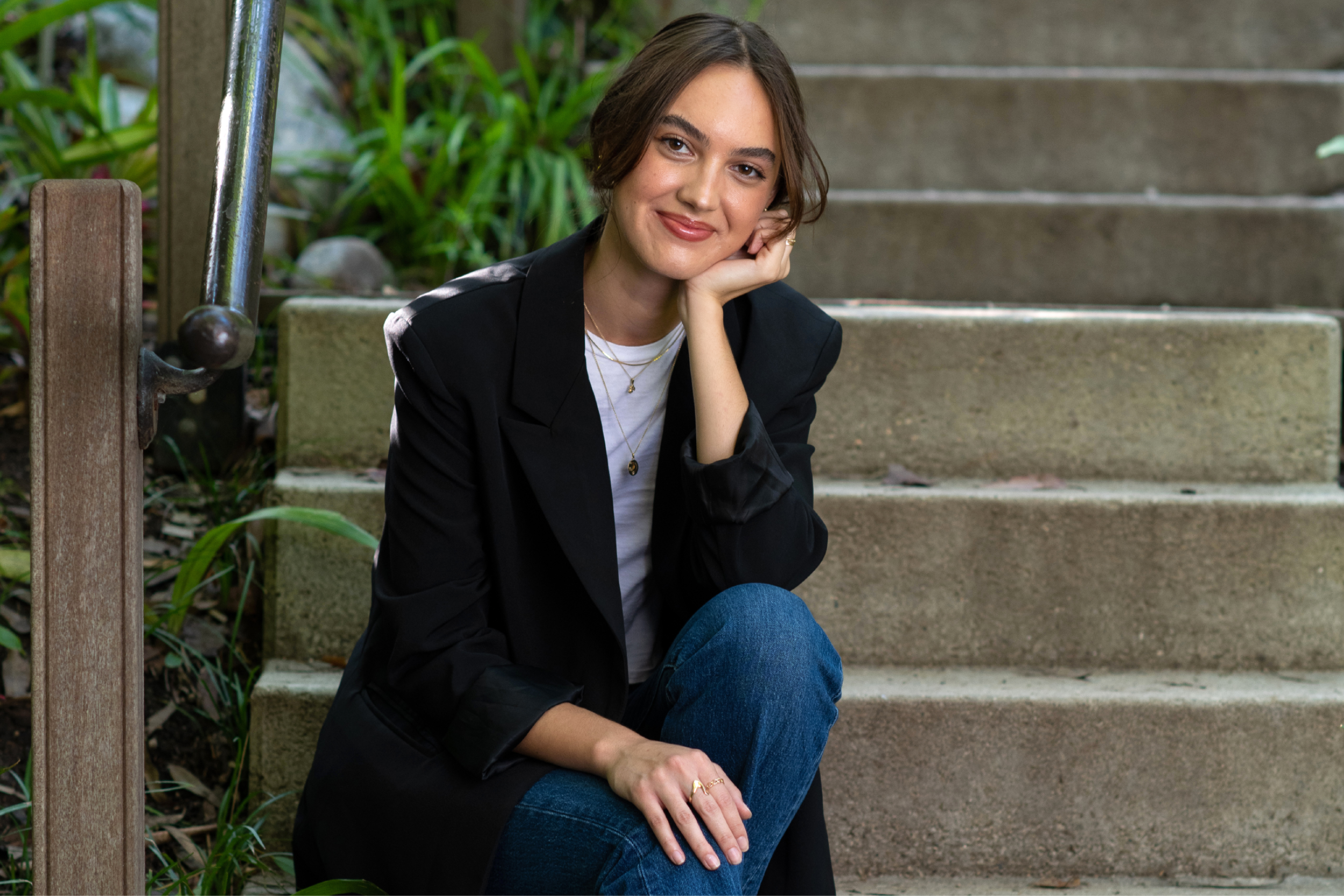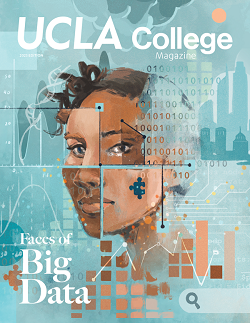By Jonathan Riggs | Photography by Stephanie Yantz
It would be hard to top Makena Tinney’s most memorable UCLA moment.
“All of us students got to handle actual human donor brains,” she says. “It was really cool to see and hold this small thing — not more than three pounds — that’s in charge of everything we think and feel.”
Fittingly, this powerful lesson occurred in “All in Your Head? Brain, Bodymind and Society” — one of UCLA’s yearlong, collaboratively taught freshman cluster courses that build community and curiosity while helping new students get off on the right foot. Tinney, an alumna of a previous cluster course in biotechnology, participated again her second, third and fourth years by supporting the program’s students as a peer research and writing specialist through UCLA Library.
“I’m a first-generation Latinx student who didn’t know much about college, so I wanted to be there for anyone who might be feeling lost or overwhelmed,” Tinney says. “I’m proud to be a voice for students, to guide them to resources and to give them good strategies for success. I can tell them from experience, ‘I did it. So can you.’”
A psychology major, Tinney was drawn to her field out of a desire to find the language for what makes us human — everything from how the brain works when we perceive color to what it’s like to have a loved one with a serious mental illness. Her dream is to work in the court system as a forensic psychologist.
“This combines the two great goals of my life: to protect those who cannot protect themselves and to understand the criminal brain,” says the true-crime junkie, who jokes that she’s been watching “48 Hours” since birth. “I am passionate about reforming law enforcement and the prison system and inspired by the inclusive, innovative directions the field of psychology is going.”
When it comes to being a compassionate, nurturing Bruin — reflected also in her “tiny jungle” of dorm houseplants — Tinney has a deeply cherished role model.
“My grandfather used to work at UCLA as a student rep. Today, when we talk about campus, he’ll tell me he’s the reason we have Lucky Charms in the dining halls, because he did a survey asking students what cereal they most wanted,” she says. “Getting reduced fees as an employee was the only way he was able to take a few courses here. So it makes me extremely proud to go to UCLA and carry on his dream.”
She hopes to spark this same feeling of pride in the younger students she counsels, and to make them feel at home.
“Something I like to say a lot is, ‘You deserve to be here,’” Tinney says. “UCLA belongs to all of us.”




 © Stephanie Yantz
© Stephanie Yantz © Stephanie Yantz
© Stephanie Yantz